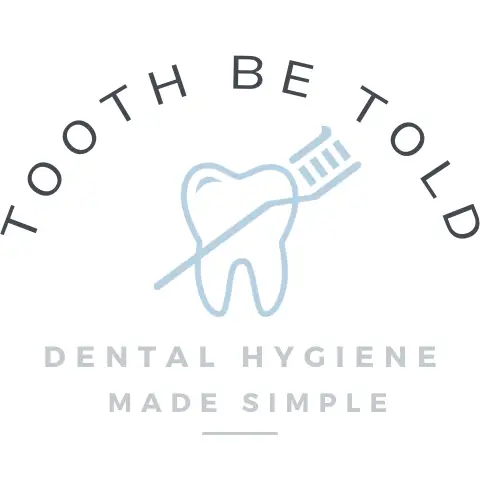Dry mouth (also known as xerostomia) can be debilitating and significantly impact both your oral health and overall health. Having experienced it myself and having patients I counsel with a dry mouth, I know it can be a long, frustrating journey. Protecting teeth from dry mouth is my top priority to ensure good oral health and overall health.
You can protect teeth from a dry mouth by keeping the mouth moist with water or over-the-counter mouth lubricants, including xylitol, carboxymethylcellulose, or hydroxyethylcellulose. Avoid alcohol, caffeine, tobacco, antihistamines, decongestants, and sugary/acidic food and drink.
Medical conditions can cause dry mouth, medications, anxiety, chemo/radiation treatment, drug and alcohol use, and become much more common as we age due to increased medications, breathing through the mouth, and dehydration.
Protecting teeth also entails managing such causes. I have put together a list of ways to protect teeth from a dry mouth that I give to my patients to help them.
Below are 18 ways that you can protect teeth from dry mouth;
- avoid using oral products that contain alcohol, glycerin, lemon
- use sips of water or ice chips to help moisten mouth
- use over-the-counter saliva substitutes
- avoid using sugar-containing candy and gum
- use therpeutic xylitol oral products such as mints, gum and pastilles
- understand medical condition that contribute to dry mouth and use medication to increase saliva
- have dental professional apply flouride treatment to teeth
- at home fluoride treatments (rinses or custom trays)
- analyze diet – avoid food or protect teeth from those foods/drinks
- reduce intake of fermentable carbohydrates
- maintain good oral hygiene routine- talk with dental professional about different oral hygiene products that may be easier to use
- use an electric toothbrush
- do not rinse/eat/drink for at least 30 minutes after brushing teeth
- reduce frequent eating (eat larger meals less often during the day rather than small frequent meals)
- use liquid at meal times to help break down food and help with swallowing (reduces food getting stuck in teeth)
- stop or limit using tobacco and nicotine products
- use a humidifier beside your bed
- try to breathe through your nose, and close your mouth
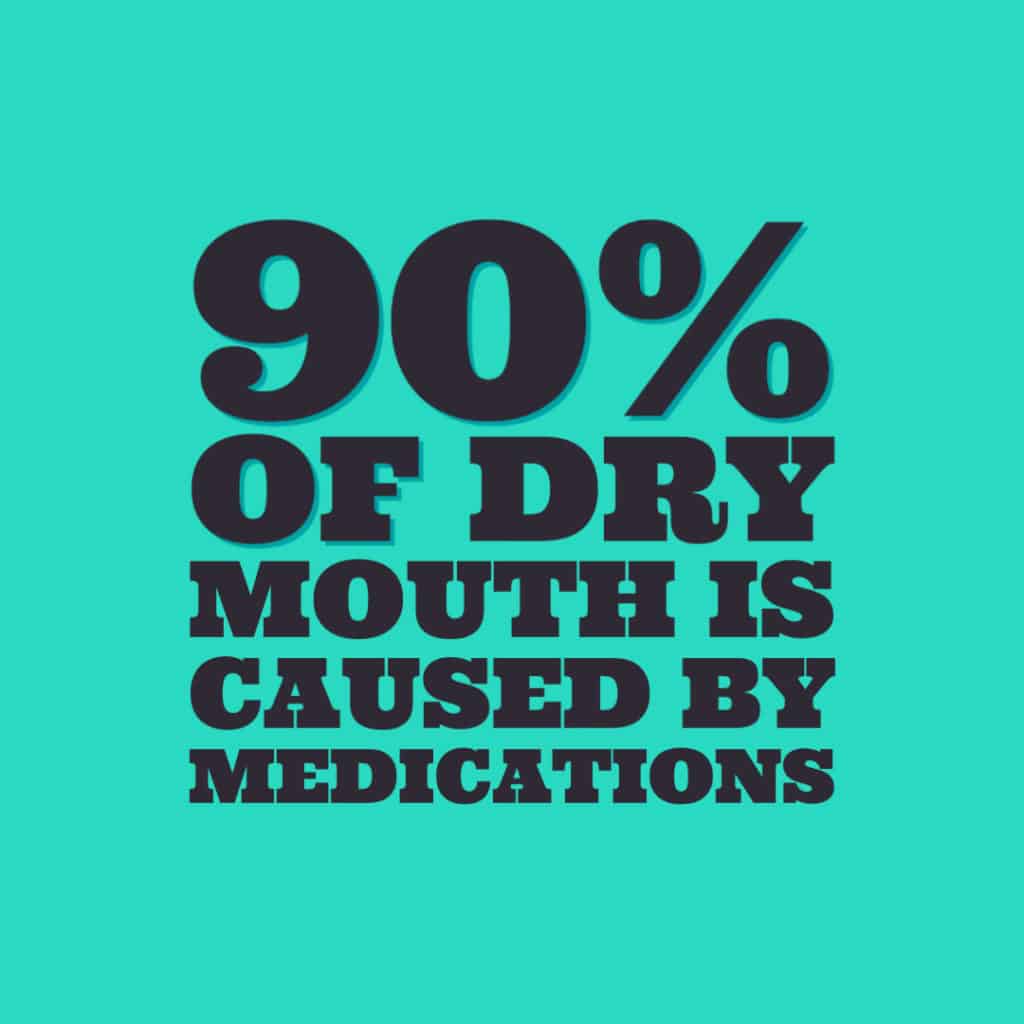
Medications that contribute to dry mouth
Medications cause over 90% of dry mouth.
Talk with your medical doctor to see if you can reduce your intake of medications that cause dry mouth. Only do this under their care. But the following medications that decrease saliva in the mouth are;
- Alzheimer’s medications
- Anticholinergics
- Antidepressants (tricyclic)
- Antihistamines
- Antihypertensives
- Antianxiety including benzodiazepines
- Anticonvulsants
- Antipsychotics
- Bronchodilators
- Decongestants
- Diuretics
- Analgesics including Nonsteroidal anti-inflammatory
- Stimulants
However, some medications stimulate the salivary glands to produce more saliva. The medications that your doctor can prescribe are;
- pilocarpine (Salagen)
- cevimeline (Evoxac)
These medications do have side effects. I have had patients who have taken them and told me that they stopped because of the side effects. I am telling you this because they are not magic pills and will fix everything. A dry mouth can be a battle, as things can change quickly, and life throws us curveballs.
Medical conditions that can cause dry mouth
Medical conditions that we can have can impact our entire bodies, including our saliva production.
Sjogren’s syndrome, systemic lupus erythematosus, rheumatoid arthritis, diabetes, stroke, yeast infection in the mouth (oral thrush), Alzheimer’s, sleep apnea, and HIV/AIDS are medical conditions that can increase and cause dry mouth.
Read now: Dry Mouth With CPAP: Prevent and Eliminate Dental Problems
Individuals who suffer from dry mouth are at more risk of oral candidiasis, aphthous ulcers, dental caries (cavities) and gum disease.
How dry mouth causes cavities (tooth deday)
Eating fermentable carbohydrates increases the growth of cavity-causing bacteria (streptococcus mutans), which leads to the mouth becoming more acidic due to the increased amount of bacteria producing acid. Increased acid levels in the mouth will lead to an increase in tooth decay.
It’s not only fermentable carbohydrates that affect the pH level in the mouth; all food and drink we consume can impact our oral health. Poor oral hygiene practices also allow the bacteria to build up on the teeth, and infrequent use of toothpaste can contribute to tooth decay susceptibility.
The acid levels in the mouth are critical in tooth decay. The pH level in the mouth indicates if the tooth can start to break down. The root surface will begin to demineralize when the pH level is below 6.2 to 6.4, and the crown of the tooth (enamel) will start to demineralize when the pH level is below 5.5.
Below is a chart made by Sensodyne that I give out to my patients when we talk about pH levels in the mouth. It is a good reference for individuals who suffer from dry mouth.
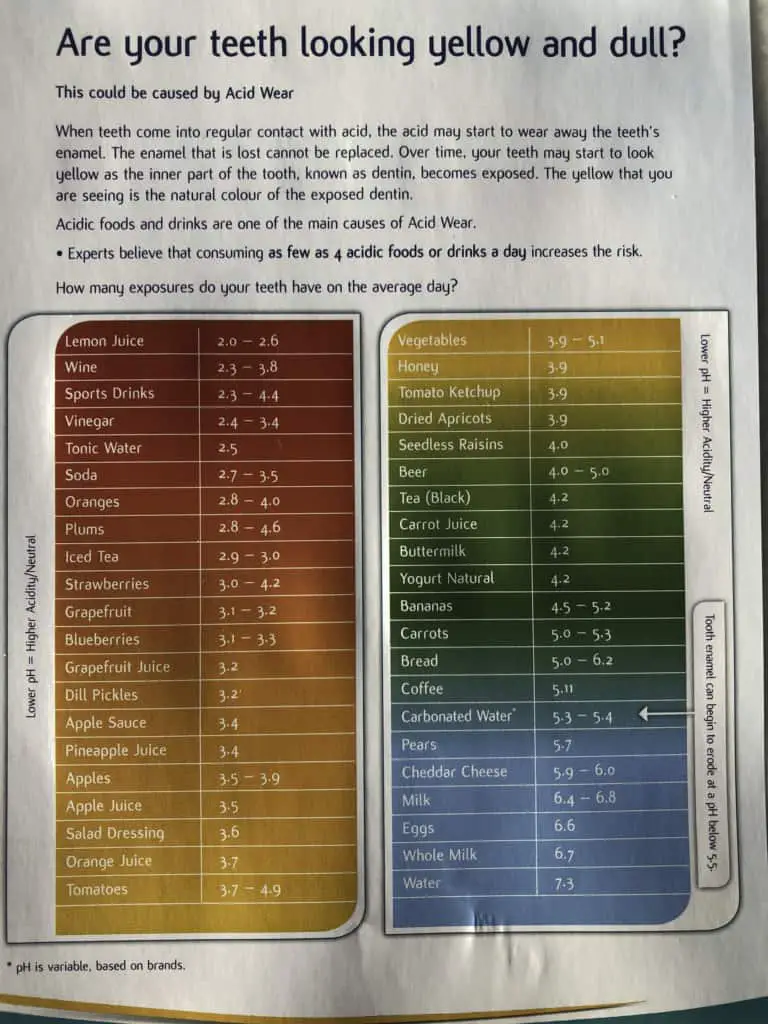
If you know someone under the care of a caretaker, you will want to share this information with them.
Personal story;
When my grandmother was still alive, she had people come into her home and take care of her. My grandmother had Sjogren’s syndrome, which leaves the individual with a very dry mouth.
We went over with the caretaker ways to help her with her eating to alleviate her dry mouth, as well as ways to help her protect her teeth from cavities and other ailments that arise from dry mouth. They always served her a warm cup of tea or a glass of water to help her swallow, and rinse away food debris after she was done eating.
Products to releive and treat dry mouth I recommend as a dental hygienist
I always advocate first for good oral hygiene practices. Brushing and interdental cleaning are essential to control the number of bacteria in the mouth.
Many of the products I recommend using to work effectively need a clean surface, free from plaque and food debris.
If too much plaque and food debris on the teeth, the products will have little effect.
I just wanted to clarify that I am not sponsored by any of these products that I will include for you here. I only recommend products that are backed by evidence-based science to ensure efficacy and safety. I have also tried all of these products myself, as I went through a period that I suffered from dry mouth related to an antideppressant medication I was taking at the time.
The first product that I will show you is one that you can use both during the day and the nighttime while you sleep.
When we sleep, our saliva flow lessons even more (or we would be waking up in a pool of our saliva). Reduced saliva flow is the body’s natural response and is completely normal and to be expected. But for people who suffer from dry mouth, reduced saliva at night can be very hard to manage and affect sleep.
I recommend XyliMelts for dry mouth relief at night
XyliMelts is the only product that has been proven to be safe for use while sleeping.
The essential ingredient in this product is xylitol, a sugar alcohol that cannot be digested by the cavity-causing bacteria in the mouth, inhibiting their growth. This prevents cavities in itself, but the increased salivary production also helps prevent cavities.
How to use XyliMelts;
XyliMelts can also be used during the day if needed! I find them fantastic while I wear a mask all day for work.
To use them, you put the brown side on the gums above your top molars. This is where a large salivary gland exits into the mouth, so placement is important.
I tried to take a picture of myself using one and where I put them in the mouth. It is a bit blurry, but you can see the pastille just above my top molars. You can either use one or two (one on each side of the mouth).
Please do not chew them. They are meant to be slow release and are very hard, and could damage the teeth if chewed.
Read now: Lozenges for Dry Mouth; Why You Should Be Using Them Now
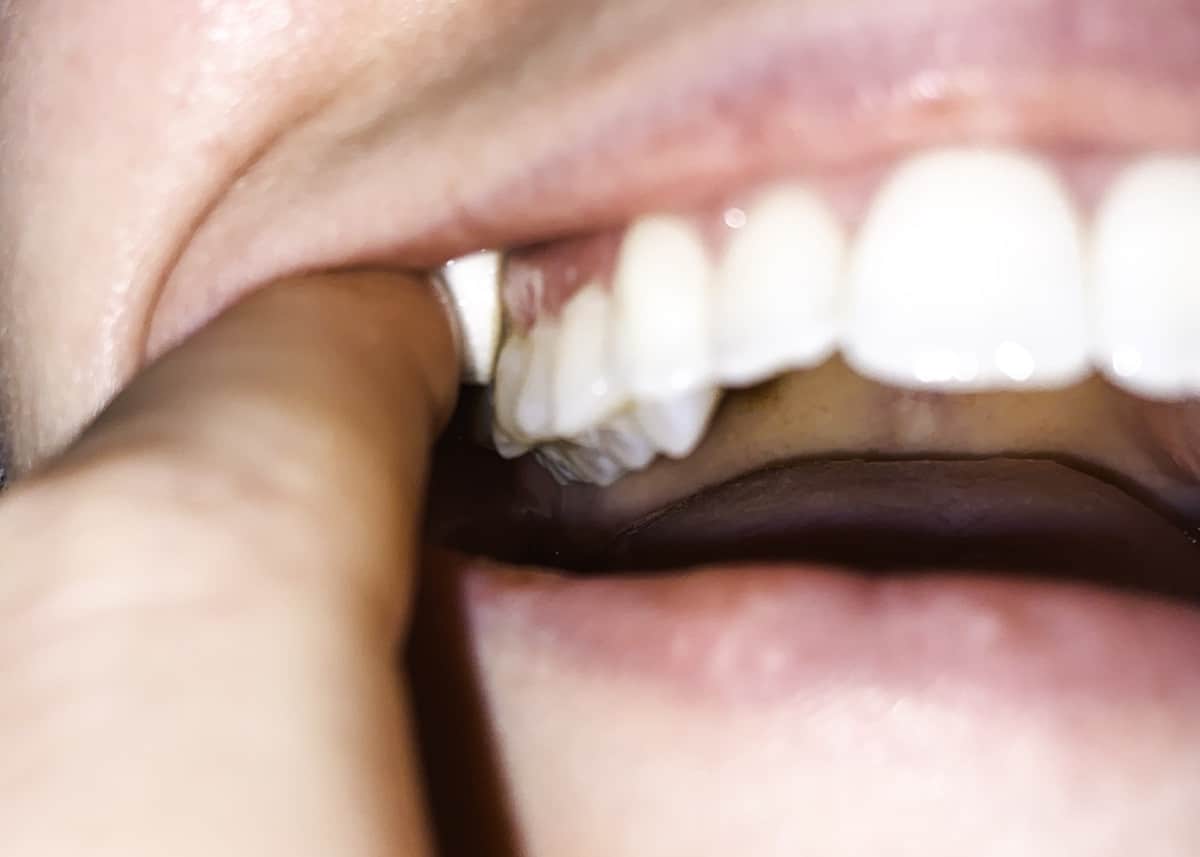
I love them so much that I reached out to the company and got some sample packs like the one in the picture below, so ask your dental professional if they have access to samples.

Honestly, this product has changed my patients’ lives who suffer from severe dry mouth. It has allowed them to sleep more soundly, avoiding their tongue from sticking on the surfaces of their mouth and helps relieve issues with swallowing.
You can purchase them on Amazon if you don’t want to wait to ask your dental professional. Amazon sells them in different quantities to suit your needs.
Here is the link to the product on Amazon to check them out.
to check them out.
If you don’t want to have a pastille in the mouth or need relief for a shorter time, you can use other products.
Xylitol gum or mints
Again, xylitol is the main protagonist against dry mouth. If you want something just for quick relief, using gum or mints/lozenges can help you achieve that.
TheraBreath lozenges and Pur Gum
and Pur Gum are my go-to products that I carry around with me when I am out and about.
are my go-to products that I carry around with me when I am out and about.
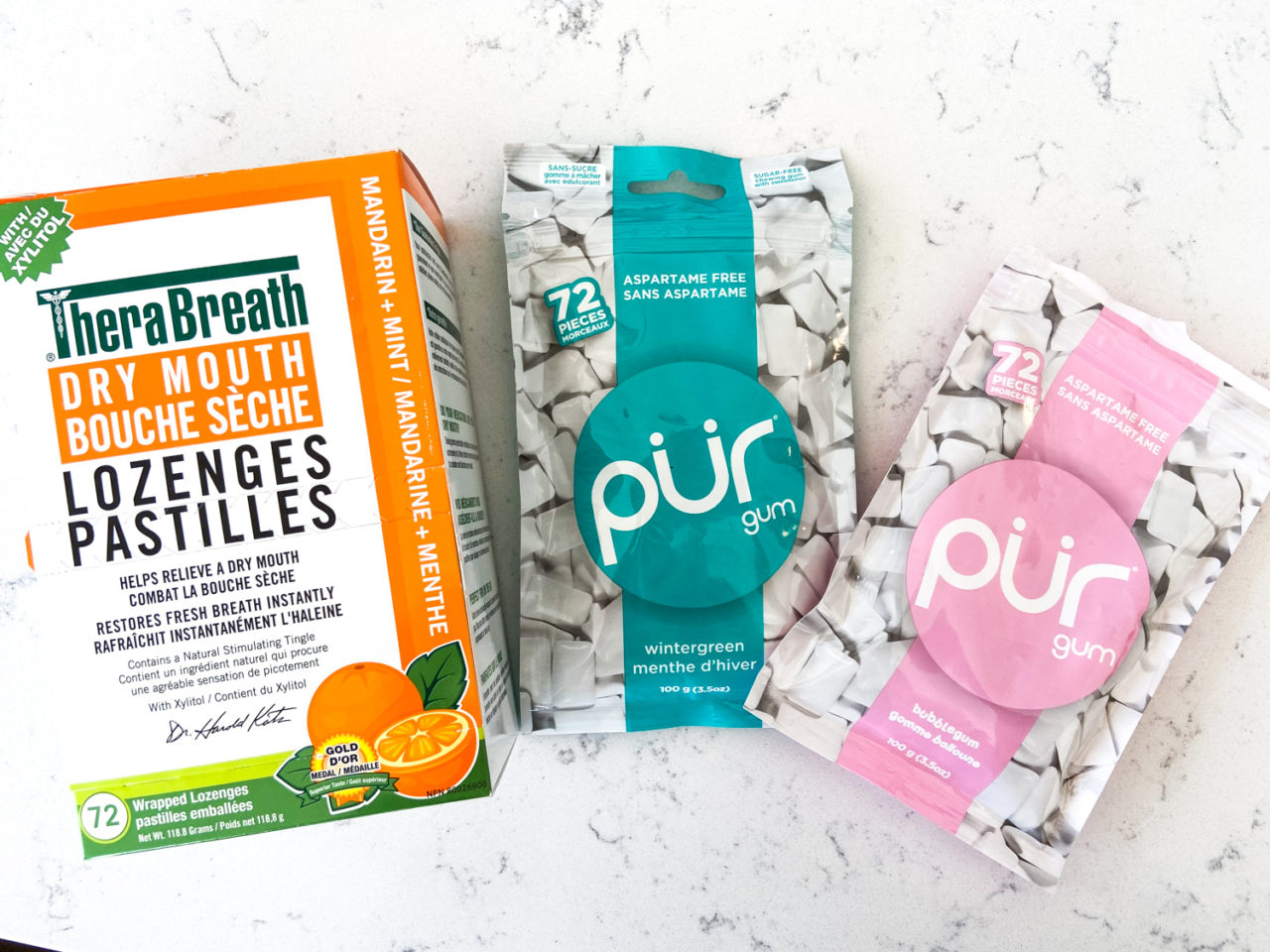
I love how the TheraBreath product also has zinc to promote better breath and immune function, and they come in small packages for easy travel convenience.
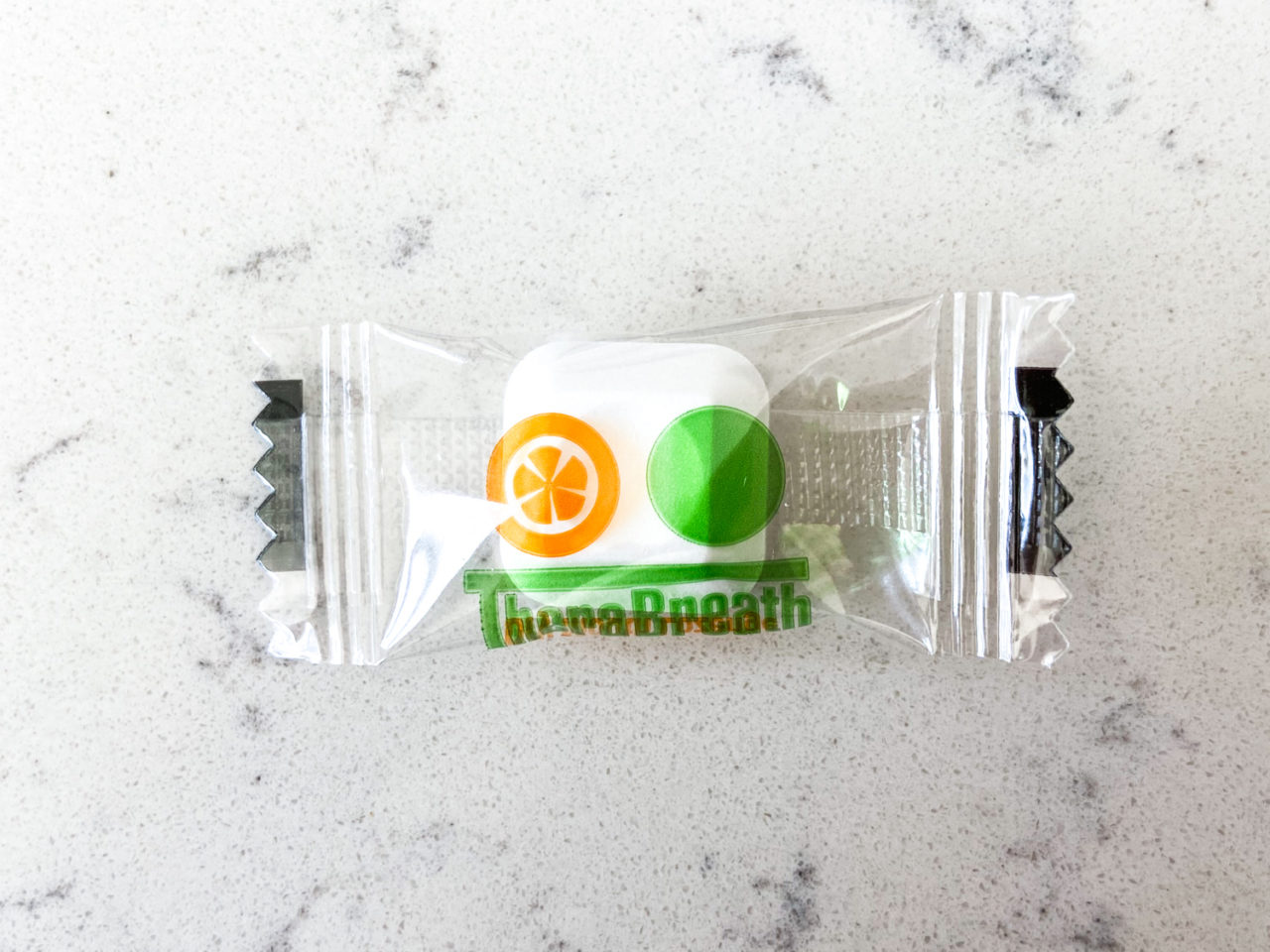
Sprays and gels to relieve dry mouth
These are also good products for on-the-go, but just a different way of relief. Gels and sprays coat the mouth and contain more lubricants to help relieve dry mouth and help with swallowing, speaking and overall comfort.
It really comes down to finding a couple of products that will help you, and sometimes you need to trial different ones to see what works best for you.
Below are some sprays and gels that are great products that I recommend to my patients.
If you suffer from a dry mouth, I hope you can find relief. It truly is a complicated issue to manage!
All the best, and I hope I have helped you today.
Holly 🙂
